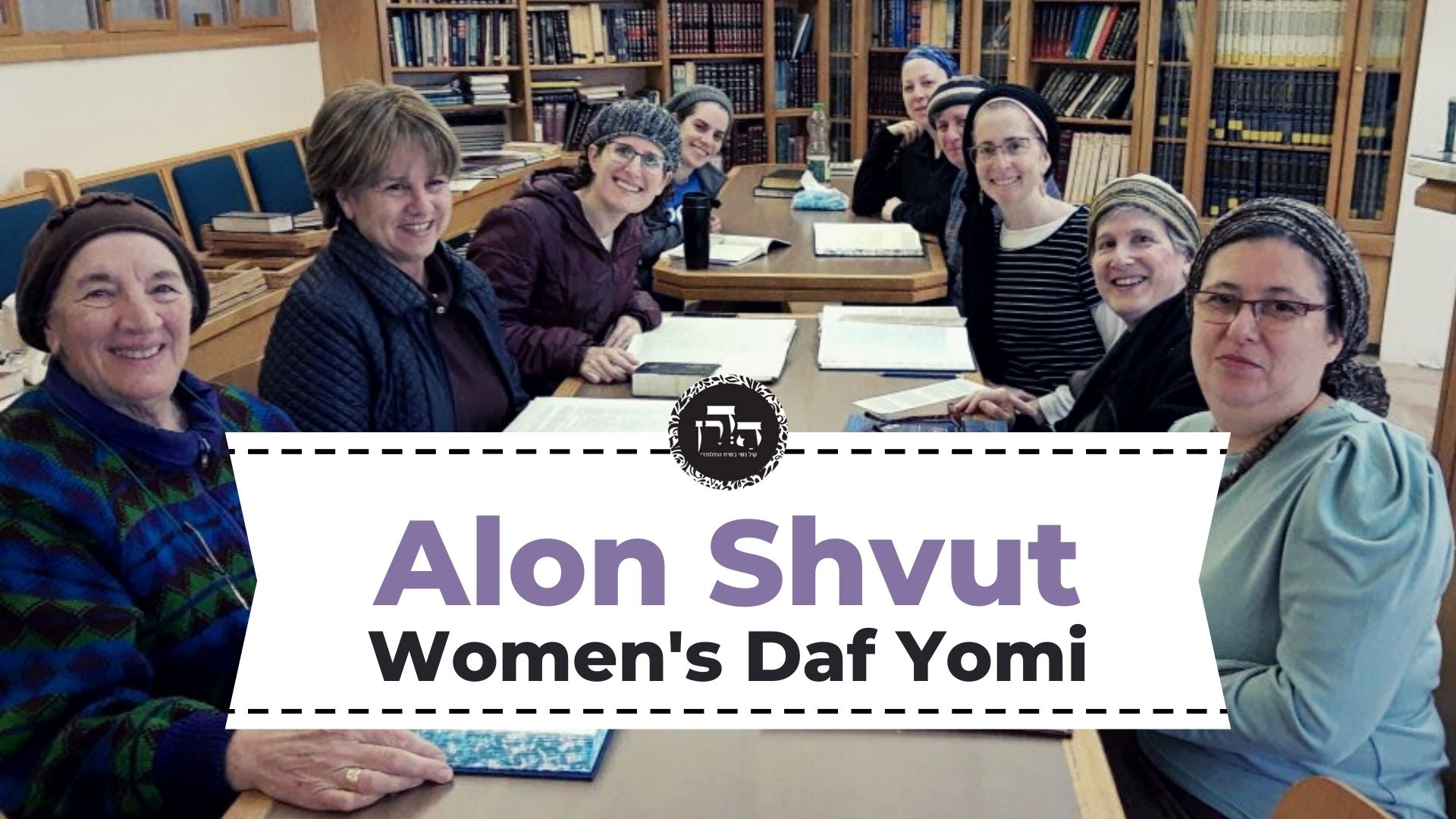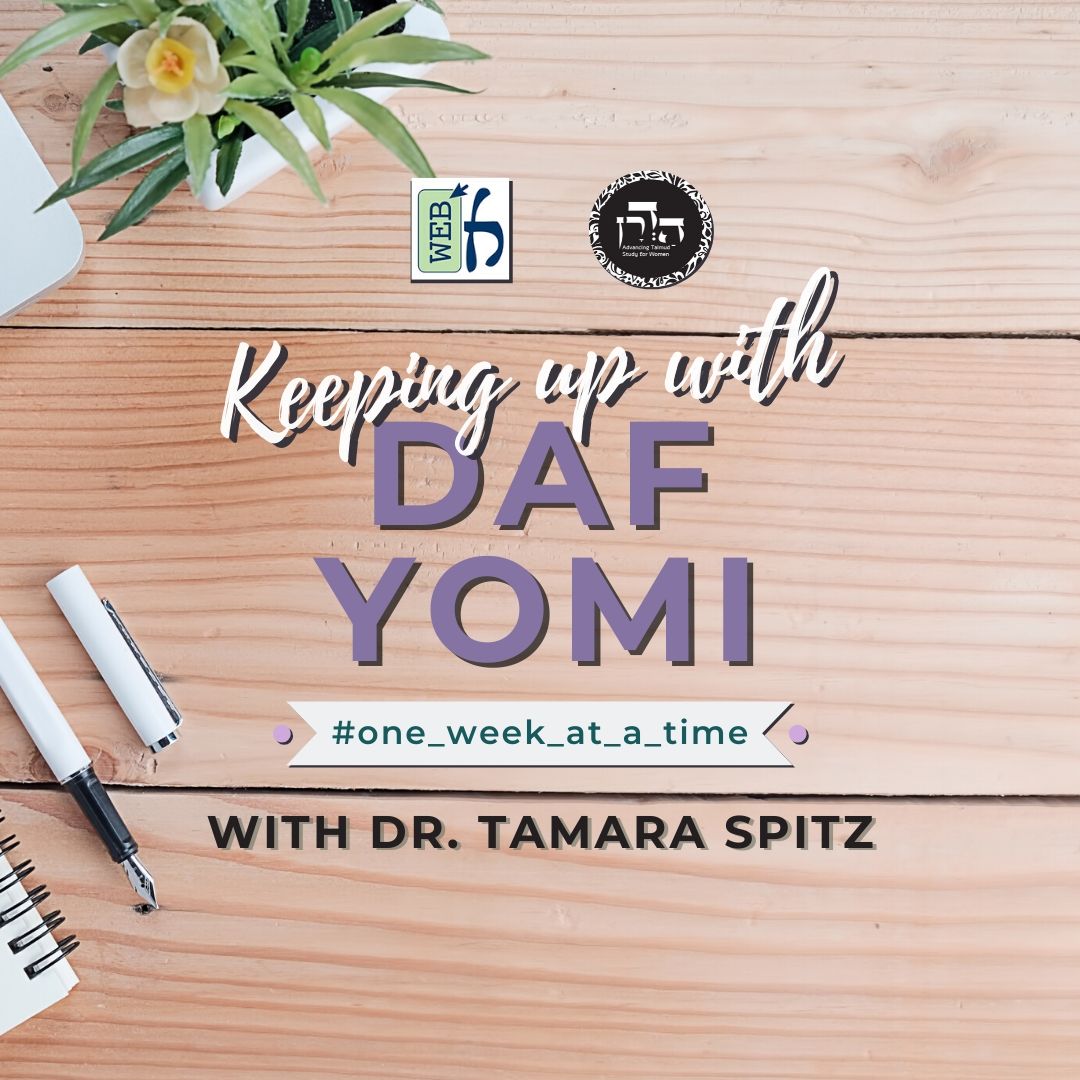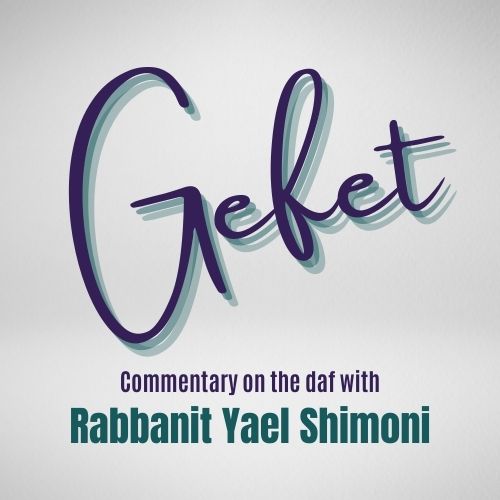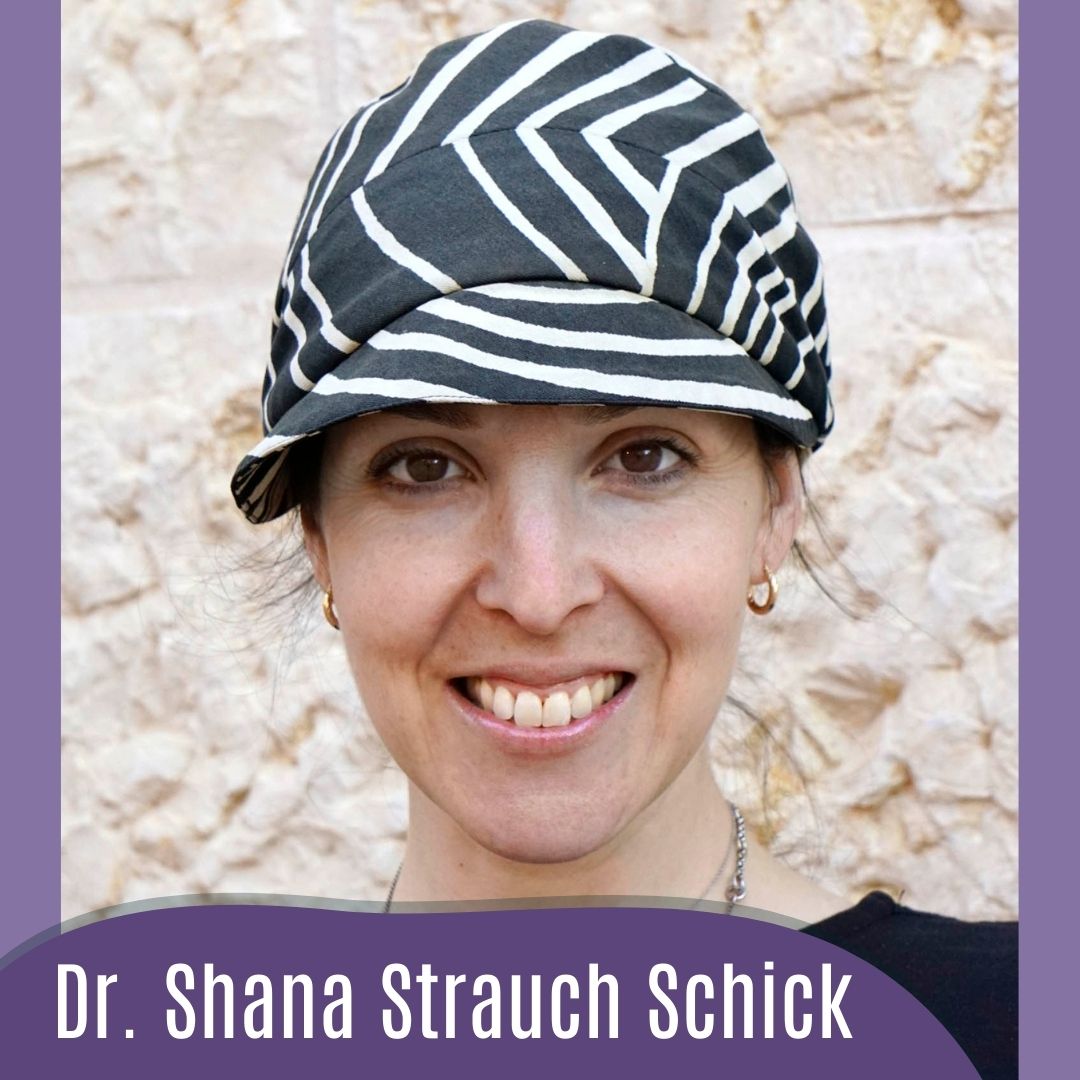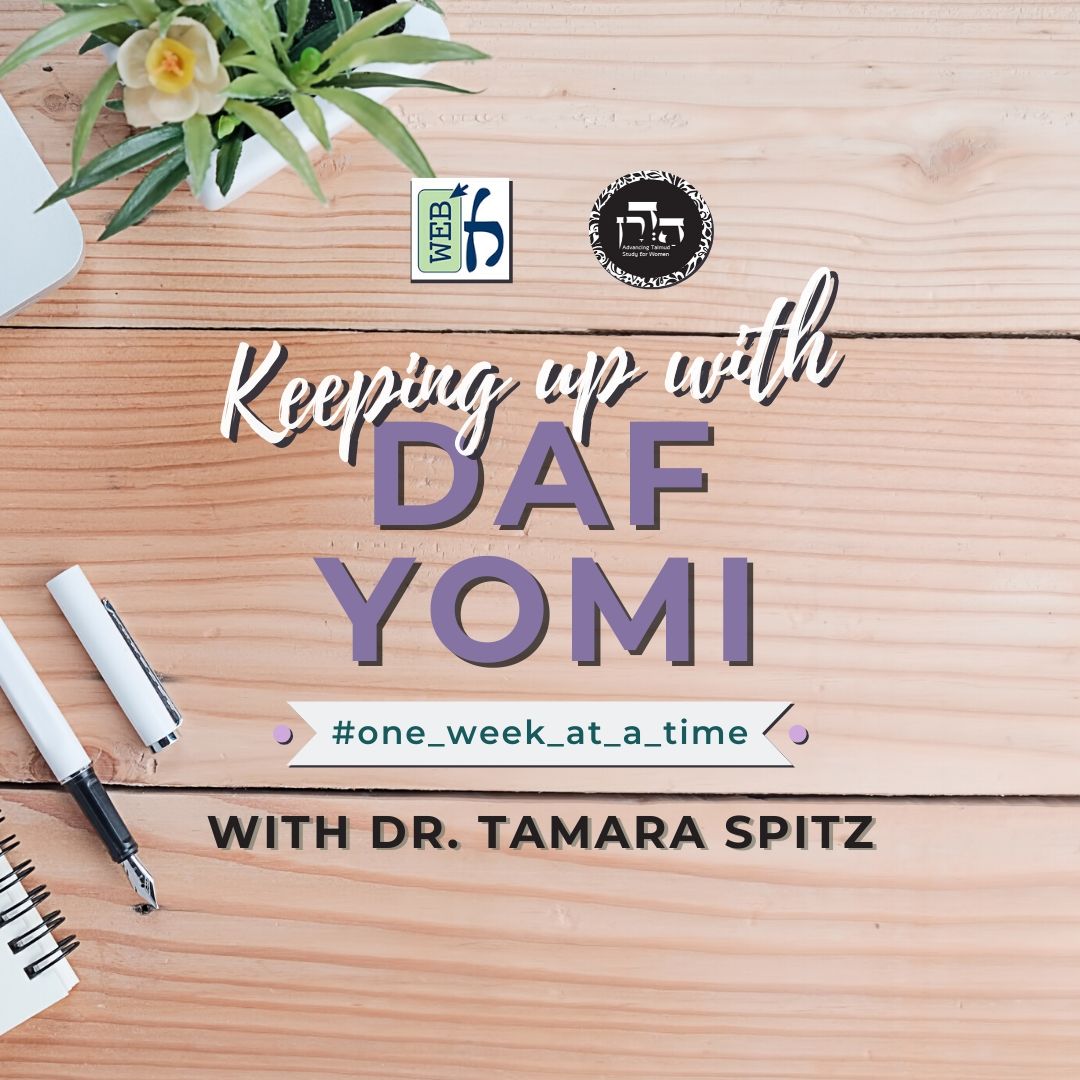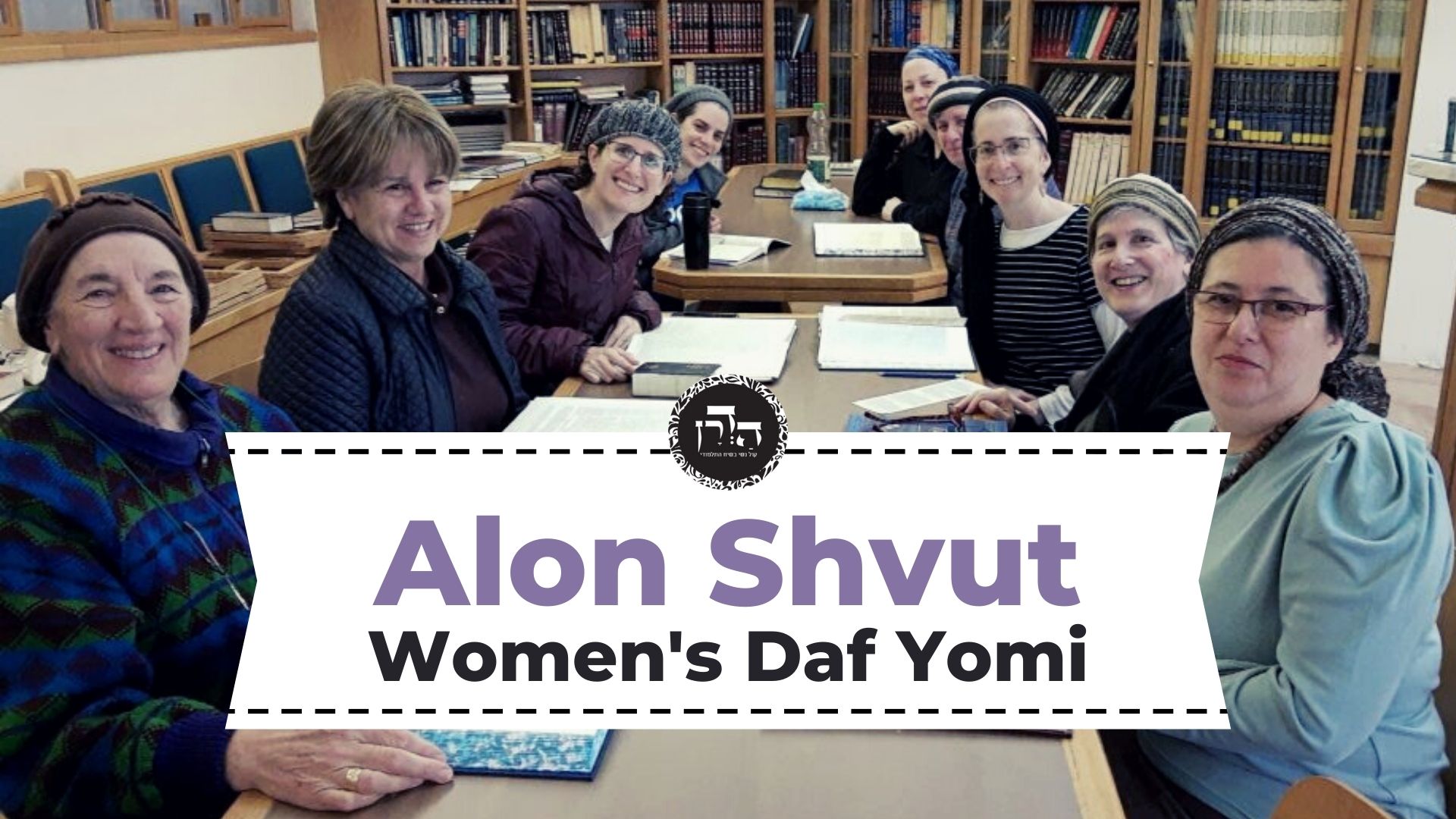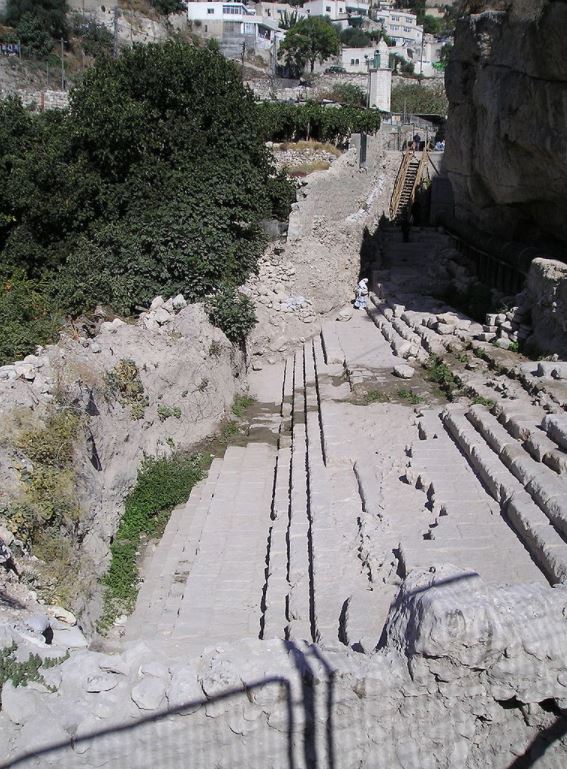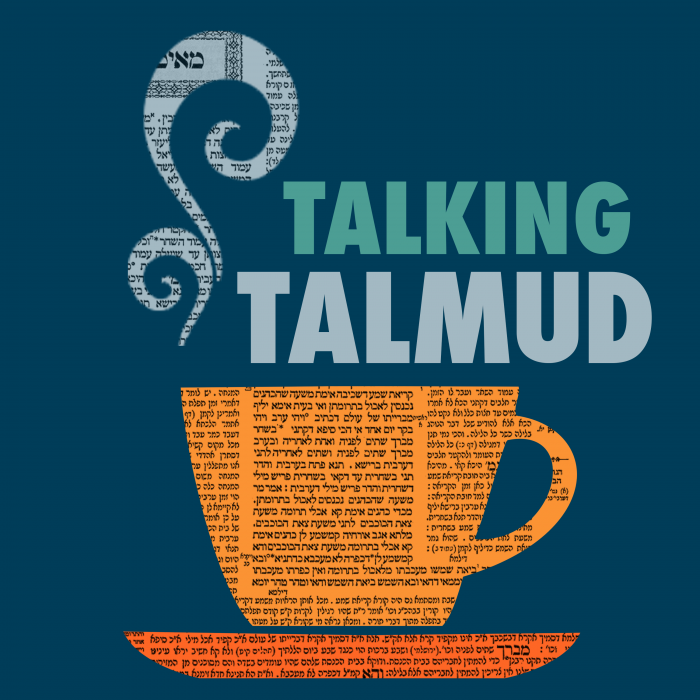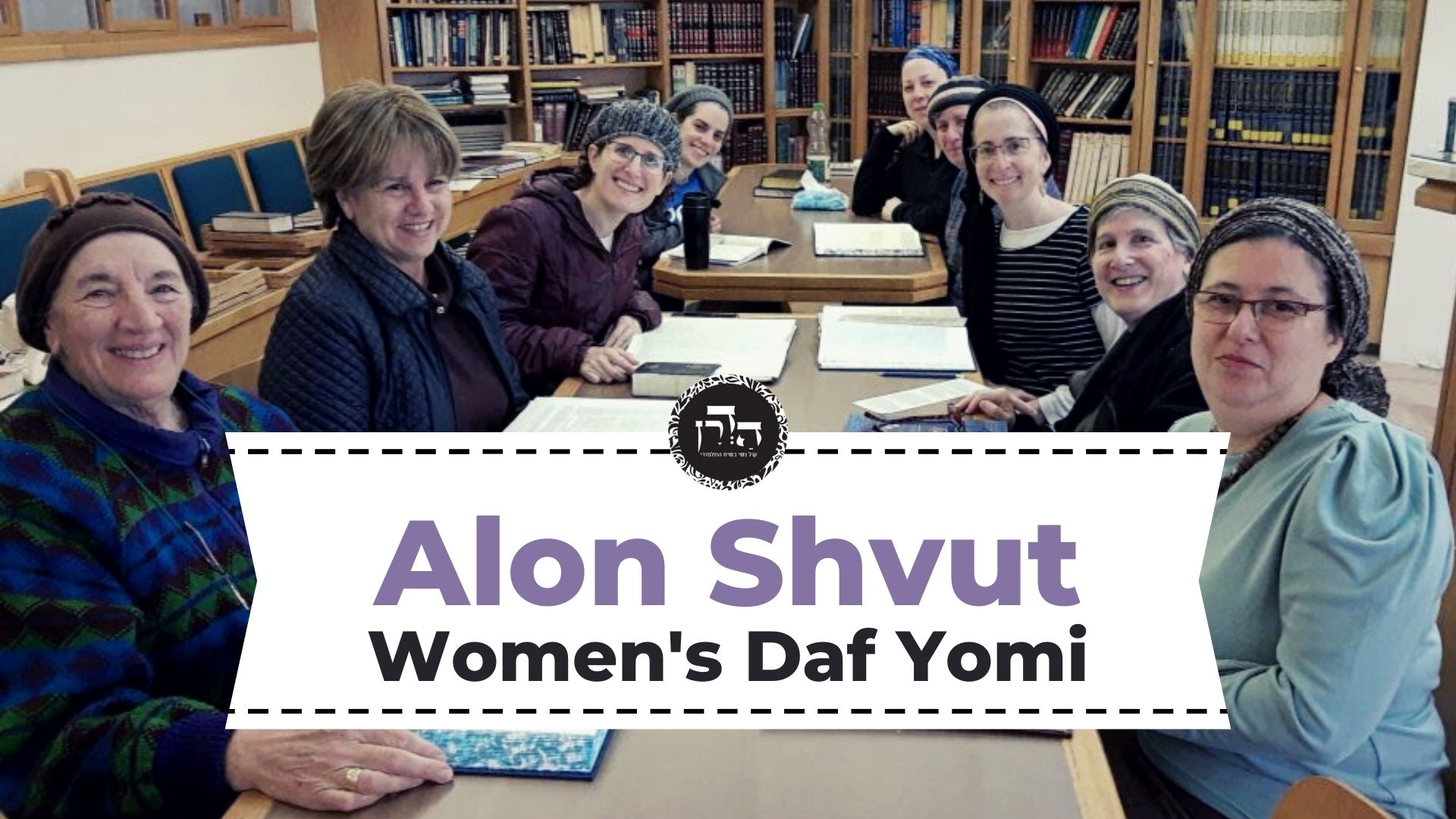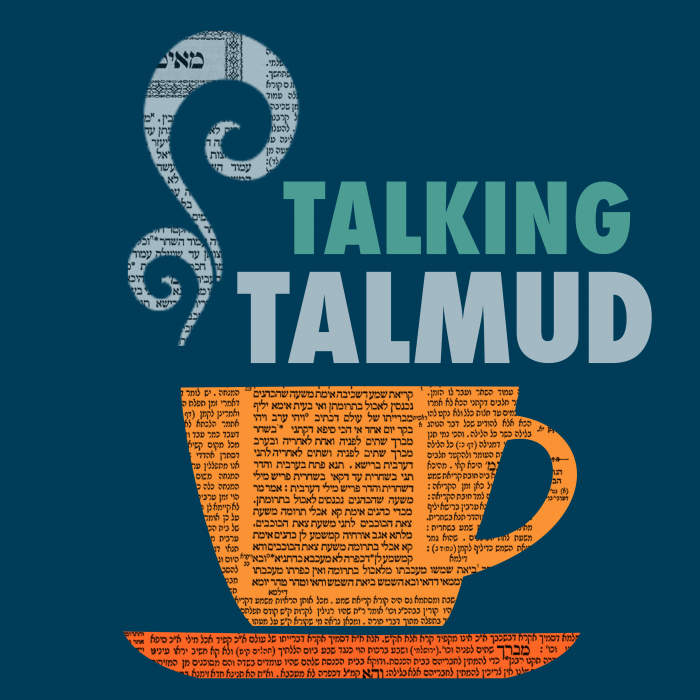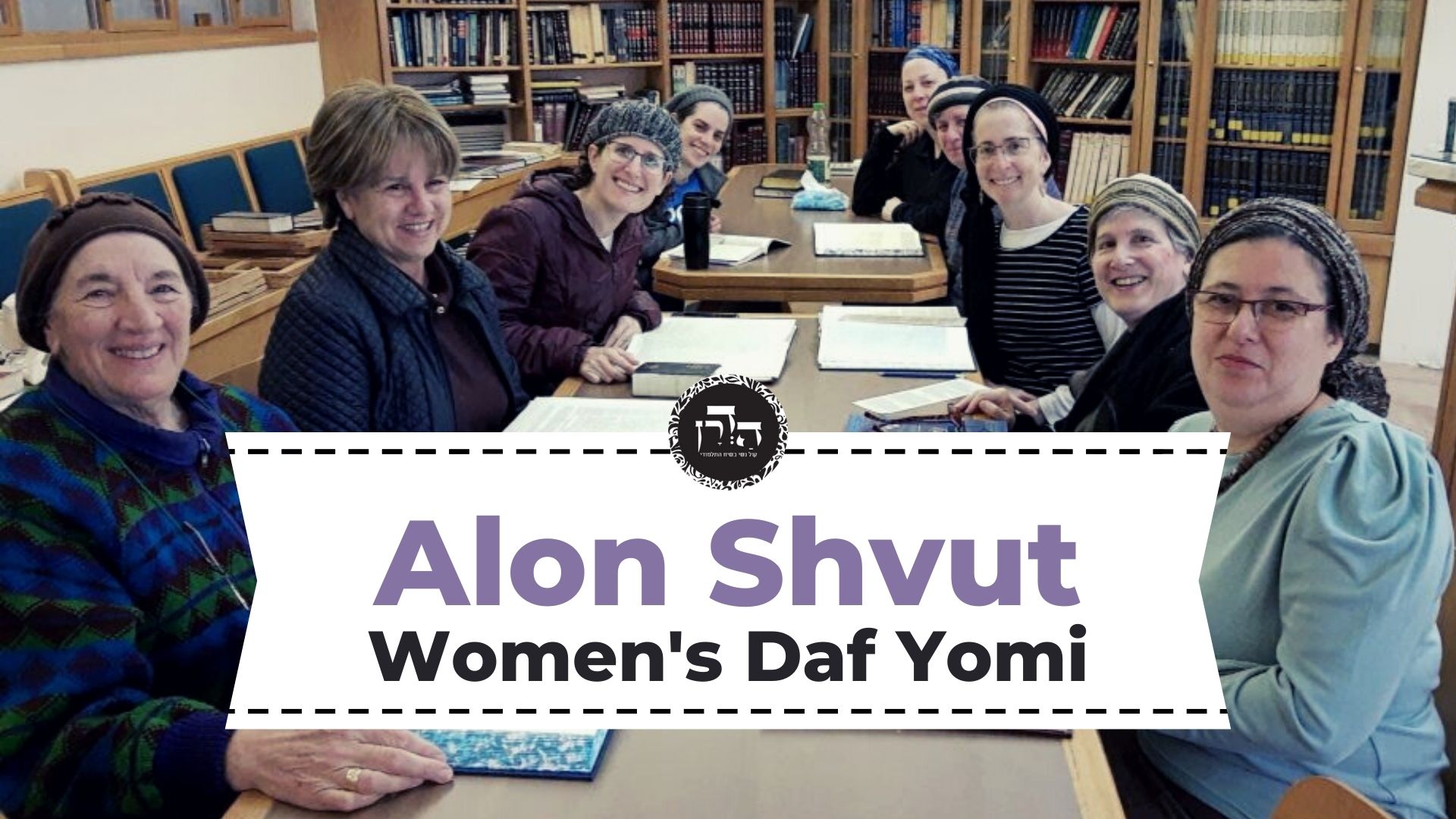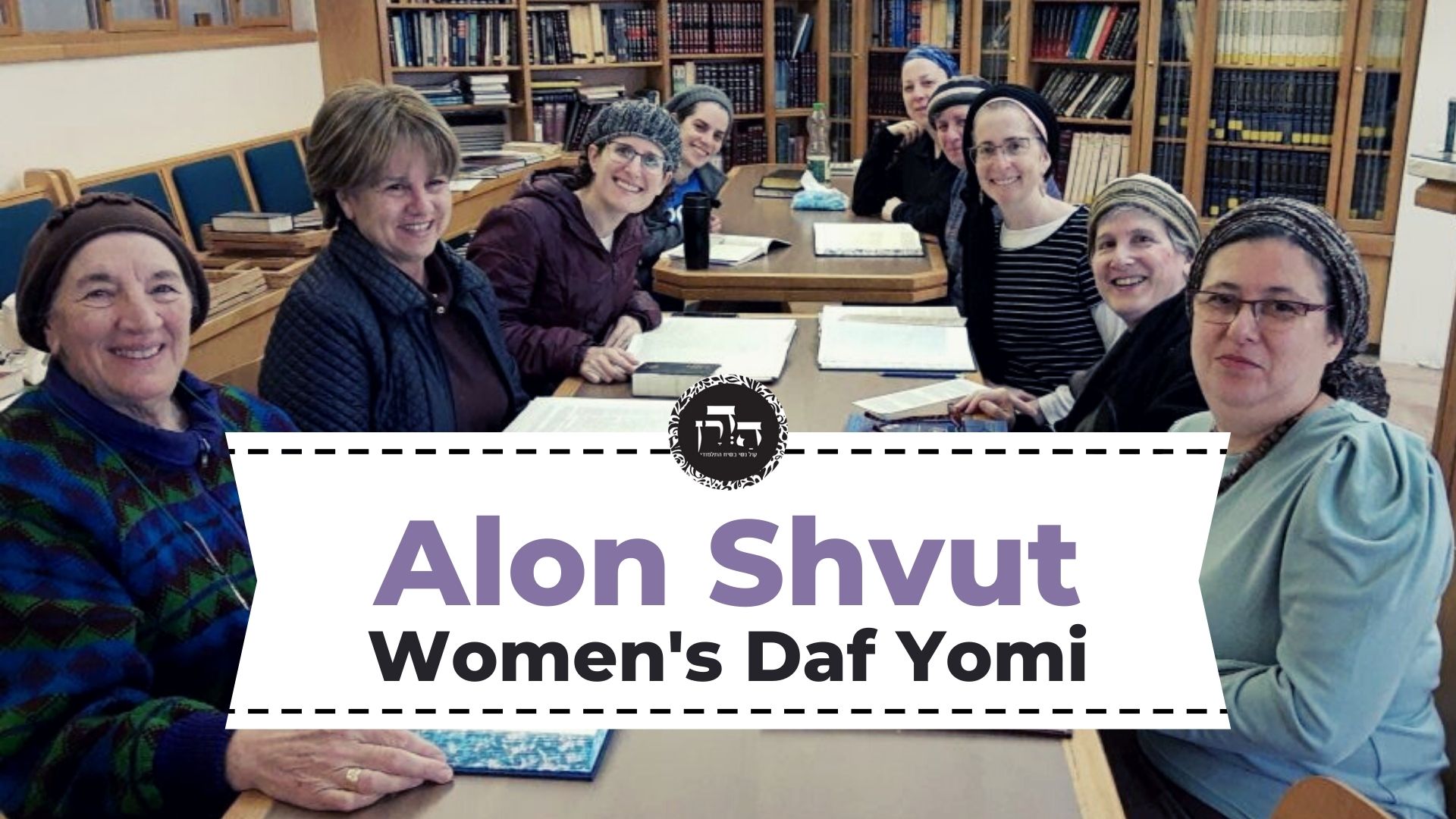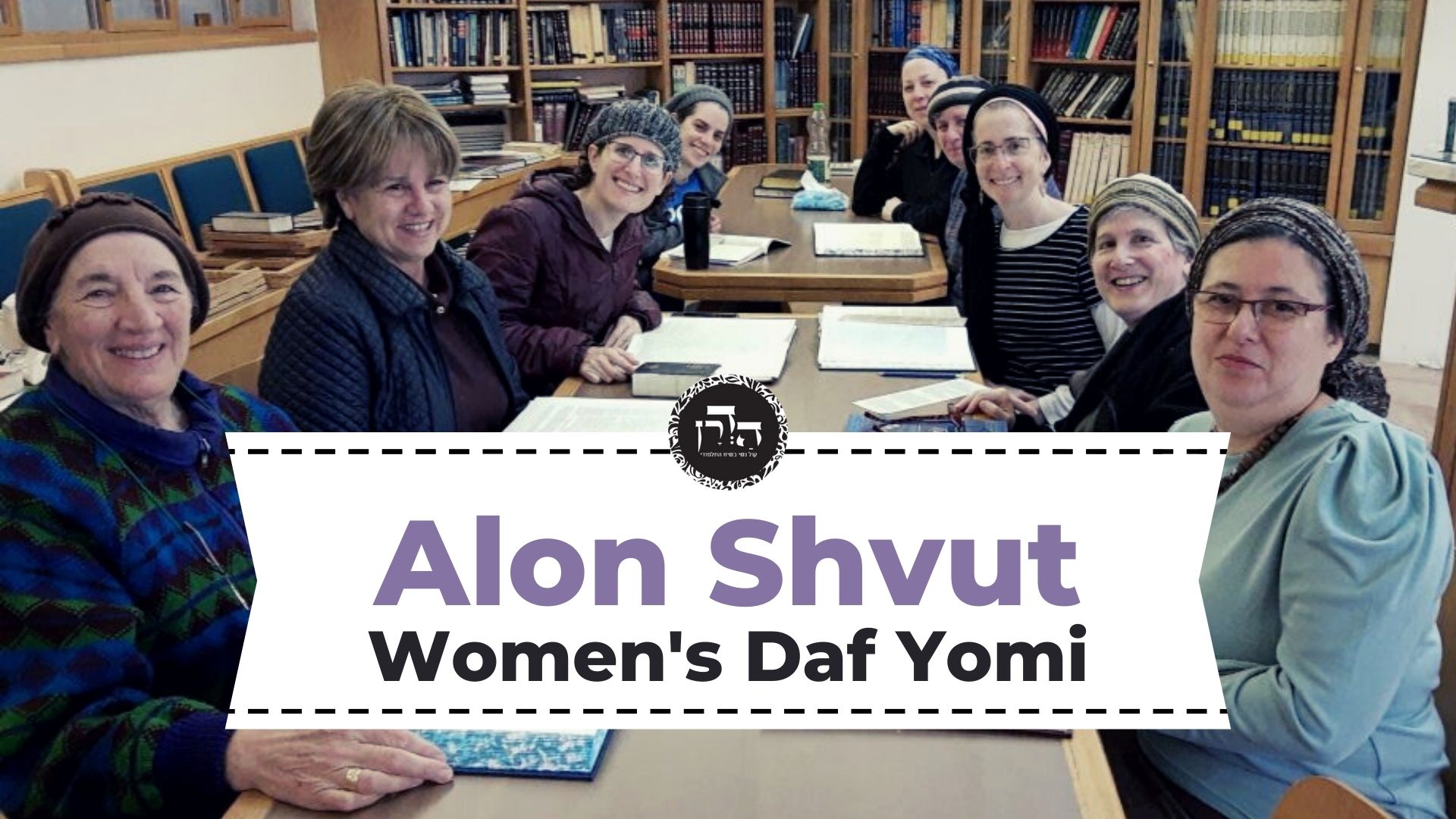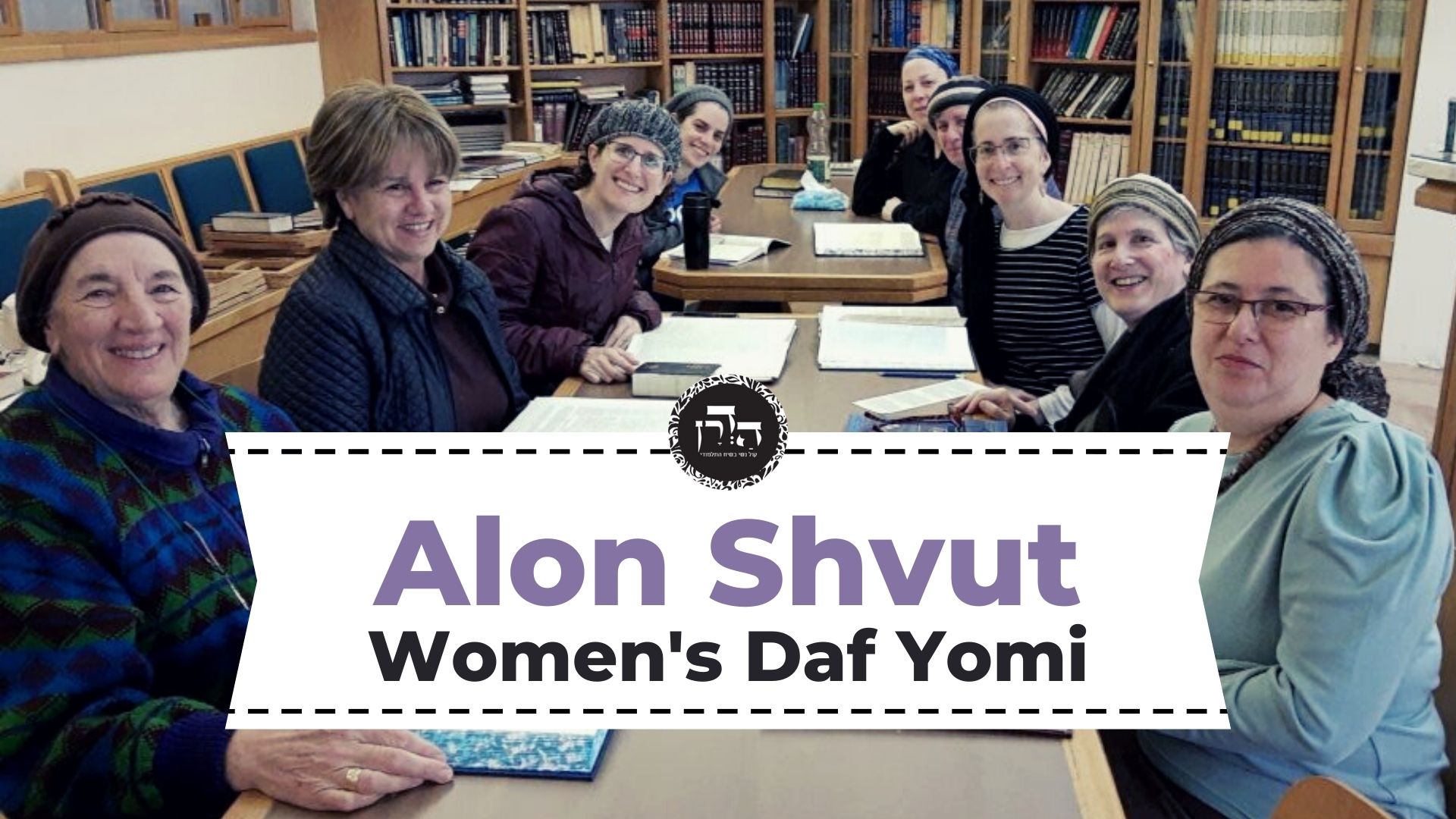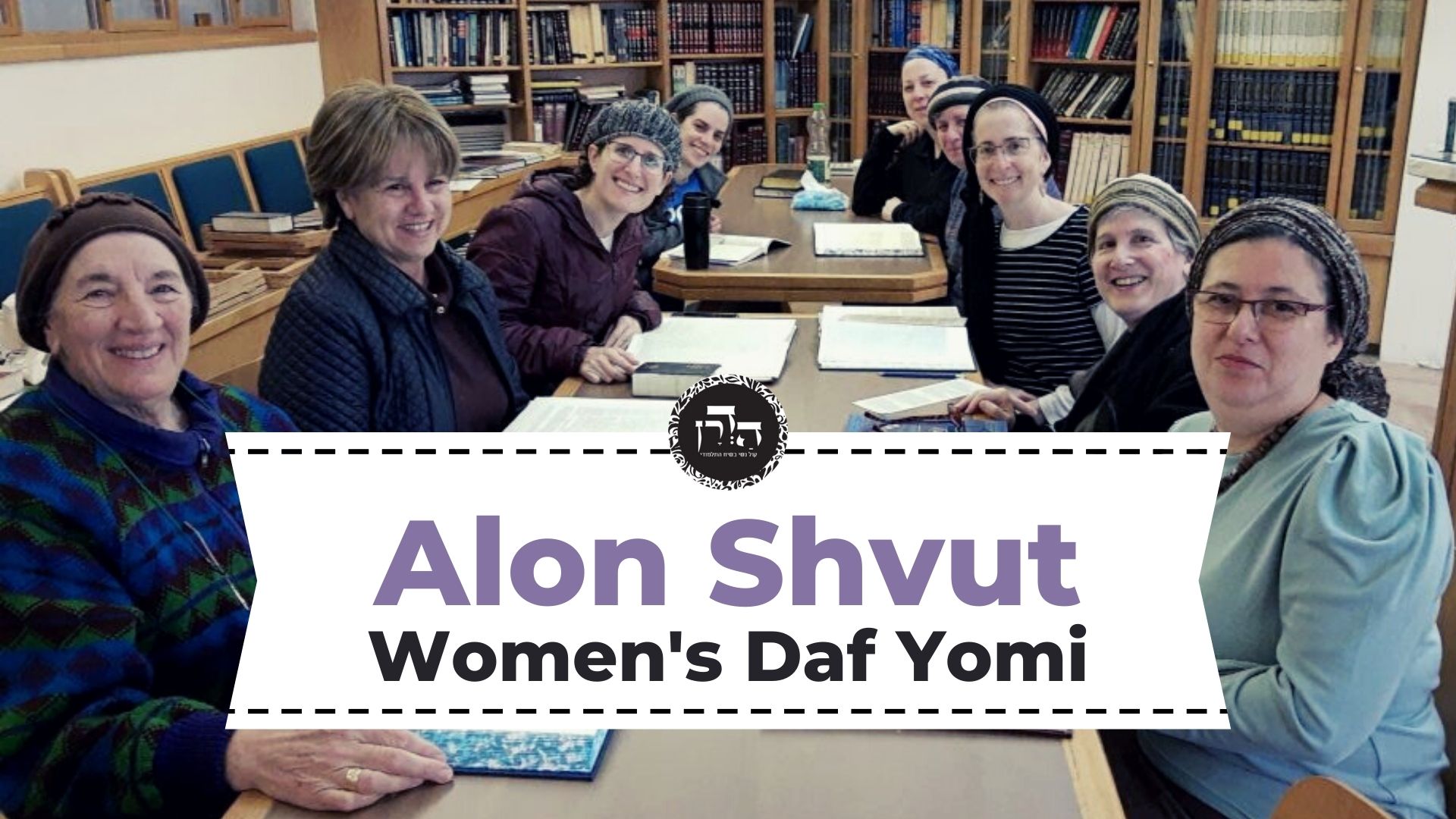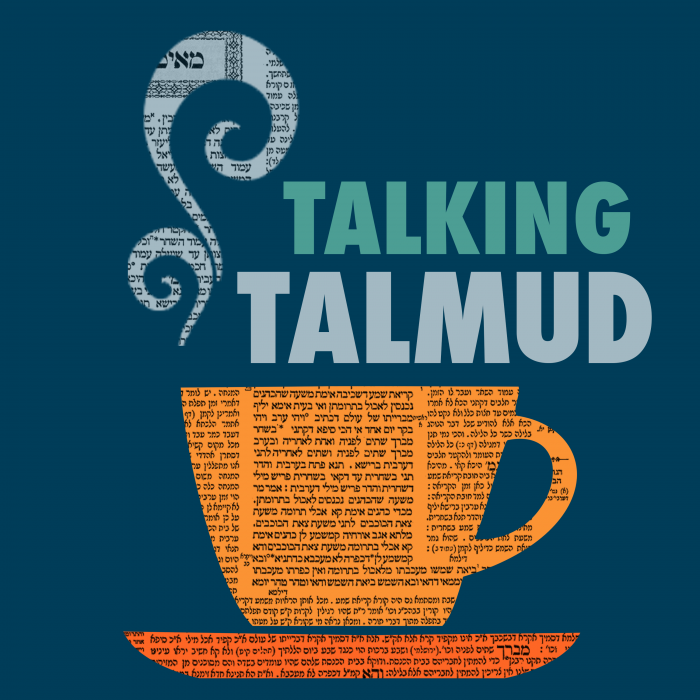Rav Ashi limits the debate between Rabbi Elazar and Rabbi Yochanan regarding how one can transfer the sanctity of shmita fruits. At first, he says they are only debating the case of the fruits themselves but all would agree that money or an item that had kedusha sanctified by the fruits would be able to transfer sanctity to another item either by sale or by redemption, chilul. However, after a question is raised, he switches his opinion and says the debate is about items sanctified by the fruits, but all would agree regarding the fruits themselves that they can only transfer sanctity through a sale. In the days when the temple stood, they would take the lulav for seven days in the temple and outside the temple only one day. After the destruction of the temple, Rabban Yochanan ben Zakkai established that lulav be taken all seven days to remember what was done in the days the temple stood. He also instituted that the new wheat would be forbidden on the 16th of Nisan until the end of the day. Why was it forbidden all day? When the first day of Yom Tov falls on Shabbat in the times of the temple, everyone (even outside the temple) would take a lulav. They would all bring it to the synagogue. How would they ensure that they would have their own lulav? Rabban Gamliel came on a boat with some other rabbis and only he had a lulav that he bought for 1,000 zuz. After he took the lulav, he gave it to others as a gift so that they could use it and then give it back to him. Why did the story tell us that he bought it for so much money? To show how much he loved performing the mitzva. Ameimar would hold the lulav during prayers (the whole time). The gemara raises a question on this. How is it resolved? It is told about the people of Jerusalem that they held their lulavs all day, other than the times that it was not manageable, such as when they learned Torah.
This month’s learning is dedicated to the refuah shleima of our dear friend, Phyllis Hecht, גיטל פעשא בת מאשה רחל by all her many friends who love and admire her. Phyllis’ emuna, strength, and positivity are an inspiration.
This week’s learning is sponsored by the Miller Rotenberg family in loving memory of their daughter Tanielle Miller on her 21st yahrzeit. “We honor and celebrate her memory by continuing the paths she forged, keeping her love of community, chesed, Israel, and learning, alive and vibrant.”
Want to dedicate learning? Get started here:


Today’s daily daf tools:
This month’s learning is dedicated to the refuah shleima of our dear friend, Phyllis Hecht, גיטל פעשא בת מאשה רחל by all her many friends who love and admire her. Phyllis’ emuna, strength, and positivity are an inspiration.
This week’s learning is sponsored by the Miller Rotenberg family in loving memory of their daughter Tanielle Miller on her 21st yahrzeit. “We honor and celebrate her memory by continuing the paths she forged, keeping her love of community, chesed, Israel, and learning, alive and vibrant.”
Today’s daily daf tools:
Delve Deeper
Broaden your understanding of the topics on this daf with classes and podcasts from top women Talmud scholars.
New to Talmud?
Check out our resources designed to help you navigate a page of Talmud – and study at the pace, level and style that fits you.
The Hadran Women’s Tapestry
Meet the diverse women learning Gemara at Hadran and hear their stories.
Sukkah 41
בִּזְכָרִים, אֲבָל בִּנְקֵבוֹת — דִּבְרֵי הַכֹּל: עַל שְׁחוּטִין — מִתְחַלְּלִין, עַל חַיִּין — אֵין מִתְחַלְּלִין, גְּזֵרָה שֶׁמָּא יְגַדֵּל מֵהֶן עֲדָרִים.
is specifically with regard to male animals, which do not bear offspring. However, with regard to female animals, everyone agrees that upon slaughtered animals, produce is deconsecrated, but upon animals that are alive, produce is not deconsecrated. The reason is that a decree was issued lest one raise flocks from the females, as typically they bear offspring. The Sages extended the decree to include males as well. From the fact that the baraita uses the term deconsecrated, and not the term purchased, apparently the sanctity of Sabbatical-Year produce takes effect by means of redemption as well.
אָמַר רַב אָשֵׁי: מַחֲלוֹקֶת בִּפְרִי רִאשׁוֹן, אֲבָל בִּפְרִי שֵׁנִי — דִּבְרֵי הַכֹּל: בֵּין דֶּרֶךְ מִקָּח בֵּין דֶּרֶךְ חִילּוּל. וְהָא דְּקָתָנֵי ״לָקַח״ ״לָקַח״, אַיְּידֵי דִּתְנָא רֵישָׁא ״לָקַח״, תְּנָא נָמֵי סֵיפָא ״לָקַח״.
Rav Ashi said: This dispute whether the sanctity of Sabbatical-Year produce takes effect by means of redemption or only by means of purchase is with regard to the original Sabbatical-Year produce itself. However, with regard to secondary produce purchased in exchange for Sabbatical-Year produce, everyone agrees that its sanctity takes effect both by means of purchase and by means of redemption. And the fact that the baraita cited in support of the opinion of Rabbi Elazar teaches: Purchased, purchased, employing that term even with regard to secondary produce, and not the terms deconsecrated or redeemed, does not prove that sanctity takes effect only by means of purchase. Rather, since the tanna of the baraita taught the first clause of the halakha employing the term purchased, he taught the latter clause employing the term purchased, even though sanctity takes effect even by means of redemption.
אֵיתִיבֵיהּ רָבִינָא לְרַב אָשֵׁי: מִי שֶׁיֵּשׁ לוֹ סֶלַע שֶׁל שְׁבִיעִית וּבִיקֵּשׁ לִיקַּח בּוֹ חָלוּק, כֵּיצַד יַעֲשֶׂה? יֵלֵךְ אֵצֶל חֶנְווֹנִי הָרָגִיל אֶצְלוֹ, וְאוֹמֵר לוֹ: תֵּן לִי בְּסֶלַע פֵּירוֹת, וְנוֹתֵן לוֹ, וְחוֹזֵר וְאוֹמֵר לוֹ: הֲרֵי פֵּירוֹת הַלָּלוּ נְתוּנִים לְךָ בְּמַתָּנָה. וְהוּא אוֹמֵר לוֹ: הֵא לְךָ סֶלַע זוֹ בְּמַתָּנָה, וְהַלָּה לוֹקֵחַ בָּהֶן מַה שֶּׁיִּרְצֶה. וְהָא הָכָא, דִּפְרִי שֵׁנִי הוּא, וְקָתָנֵי: דֶּרֶךְ מִקָּח — אִין, דֶּרֶךְ חִילּוּל — לָא!
Ravina raised an objection to the opinion of Rav Ashi: With regard to one who has a sela coin that has the sanctity of the Sabbatical Year and seeks to purchase a garment with it, how should he do so? He should go to the storekeeper whose store he typically patronizes and say to him: Give me fruits in exchange for this sela, and the storekeeper gives him fruits. And then he says to the storekeeper: These fruits that you sold me and that assumed the sanctity of the Sabbatical Year are given to you as a gift. The storekeeper may then eat them as one eats Sabbatical-Year produce. And the storekeeper says to him: Here is a sela for you as a gift, and that person purchases with it whatever he wants, as the sela was deconsecrated. Ravina asks: But here, isn’t it secondary produce, as the sela had previously been exchanged for the original Sabbatical-Year produce, and nevertheless the baraita teaches: By means of purchase, yes, it is effective; by means of redemption, no, it is not?
אֶלָּא אָמַר רַב אָשֵׁי: מַחֲלוֹקֶת בִּפְרִי שֵׁנִי, אֲבָל בִּפְרִי רִאשׁוֹן, דִּבְרֵי הַכֹּל: דֶּרֶךְ מִקָּח — אִין, דֶּרֶךְ חִילּוּל — לָא. וְהָא דְּקָתָנֵי: אֶחָד שְׁבִיעִית וְאֶחָד מַעֲשֵׂר שֵׁנִי — מַאי שְׁבִיעִית? דְּמֵי שְׁבִיעִית.
Rather, Rav Ashi said, contrary to the suggestion above, that the dispute is specifically with regard to secondary produce; however, with regard to original produce, everyone agrees: By means of purchase, yes, it is deconsecrated; by means of redemption, no, it is not deconsecrated. And with regard to that which is taught in the baraita cited in support of the opinion of Rabbi Yoḥanan: Both Sabbatical-Year produce and second-tithe produce are deconsecrated upon cattle, undomesticated animals, and fowl, indicating that the sanctity of Sabbatical-Year produce takes effect through both purchase and redemption. What is the meaning of Sabbatical-Year produce? It is referring to money exchanged for Sabbatical-Year produce but not to the produce itself.
דְּאִי לָא תֵּימָא הָכִי, ״מַעֲשֵׂר״ — מַעֲשֵׂר מַמָּשׁ? וְהָא כְּתִיב: ״וְצַרְתָּ הַכֶּסֶף בְּיָדְךָ״. אֶלָּא דְּמֵי מַעֲשֵׂר — הָכָא נָמֵי דְּמֵי שְׁבִיעִית.
And the same must be said with regard to the second tithe mentioned in this baraita, as, if you do not say so but say instead that the second tithe referred to in the baraita is actual second-tithe produce, isn’t it written with regard to the second tithe: “Then shall you turn it into money and bind up the money in your hand…and you shall bestow the money for whatsoever your soul desires” (Deuteronomy 14:25–26), indicating that second-tithe produce can be redeemed only with money, with which other food items may be purchased? Rather, the baraita must be referring to money exchanged for second-tithe produce and not to the produce itself. Here, too, with regard to the Sabbatical Year, the baraita is referring to money exchanged for Sabbatical-Year produce and not to the produce itself.
מַתְנִי׳ בָּרִאשׁוֹנָה הָיָה לוּלָב נִיטָּל בַּמִּקְדָּשׁ שִׁבְעָה, וּבַמְּדִינָה יוֹם אֶחָד. מִשֶּׁחָרַב בֵּית הַמִּקְדָּשׁ, הִתְקִין רַבָּן יוֹחָנָן בֶּן זַכַּאי שֶׁיְּהֵא לוּלָב נִיטָּל בַּמְּדִינָה שִׁבְעָה, זֵכֶר לַמִּקְדָּשׁ.
MISHNA: Originally, during the Temple era, the lulav was taken in the Temple for seven days, and in the rest of the country outside the Temple it was taken for one day. Once the Temple was destroyed, Rabban Yoḥanan ben Zakkai instituted an ordinance that the lulav should be taken even in the rest of the country for seven days, in commemoration of the Temple.
וְשֶׁיְּהֵא יוֹם הֶנֶף כּוּלּוֹ אָסוּר.
And for similar reasons, he instituted an ordinance that for the entire day of waving the omer offering, it should be prohibited to eat the grain of the new crop. It is prohibited to eat the grain of the new crop until the omer offering is brought and waved in the Temple on the sixteenth of Nisan. The offering was sacrificed in the morning; however, after taking potential delays into consideration, the new crop remained prohibited until it was clear that the offering had been sacrificed. Practically speaking, it was prohibited to eat the new grain until the sixteenth of Nisan was over; it was permitted only on the seventeenth. Once the Temple was destroyed and there was no longer an omer offering sacrificed, it was permitted to eat the new crop on the sixteenth. However, Rabban Yoḥanan instituted an ordinance that eating the new grain would remain prohibited until the seventeenth to commemorate the Temple.
גְּמָ׳ מְנָא לַן דְּעָבְדִינַן זֵכֶר לַמִּקְדָּשׁ? אָמַר רַבִּי יוֹחָנָן, דְּאָמַר קְרָא: ״כִּי אַעֲלֶה אֲרוּכָה לָךְ וּמִמַּכּוֹתַיִךְ אֶרְפָּאֵךְ נְאֻם ה׳ כִּי נִדָּחָה קָרְאוּ לָךְ צִיּוֹן הִיא דּוֹרֵשׁ אֵין לָהּ״. ״דּוֹרֵשׁ אֵין לָהּ״, מִכְּלַל דְּבָעֲיָא דְּרִישָׁה.
GEMARA: The Gemara asks: From where do we derive that we institute ordinances in commemoration of the Temple? Rabbi Yoḥanan said that it is as the verse states: “For I will restore health unto you and I will heal you of your wounds, says the Lord; because they have called you an outcast, she is Zion, there is none that seeks her” (Jeremiah 30:17). From the fact that the verse states: “There is none that seeks her,” it can be learned by inference that it requires seeking, i.e., people should think of and remember the Temple. That is the reason for Rabban Yoḥanan ben Zakkai’s ordinance.
וְשֶׁיְּהֵא יוֹם הֶנֶף. מַאי טַעְמָא? מְהֵרָה יִבָּנֶה בֵּית הַמִּקְדָּשׁ, וְיֹאמְרוּ: אֶשְׁתָּקַד מִי לֹא אָכַלְנוּ בְּהֵאִיר מִזְרָח? הַשְׁתָּא נָמֵי נֵיכוֹל. וְאִינְהוּ לָא יָדְעִי דְּאֶשְׁתָּקַד דְּלָא הֲוָה בֵּית הַמִּקְדָּשׁ — הֵאִיר מִזְרָח, הִתִּיר. הַשְׁתָּא דְּאִיכָּא בֵּית הַמִּקְדָּשׁ — עוֹמֶר מַתִּיר.
§ The mishna continues: Rabban Yoḥanan instituted that for the entire day of waving the Omer offering, it is prohibited to eat the grain of the new crop. The Gemara asks: What is the reason for this ordinance? It is that soon the Temple will be rebuilt, and people will say: Last year, when the Temple was in ruins, didn’t we eat of the new crop as soon as the eastern horizon was illuminated, as the new crop was permitted immediately with the advent of the morning of the sixteenth of Nisan? Now, too, let us eat the new grain at that time. And they do not know that although last year, when there was no Temple, the illuminating of the eastern sky permitted one to eat the new grain immediately, now that there is a Temple, the omer offering permits one to eat the new grain. Until the omer offering is sacrificed, the new grain is not permitted.
דְּאִיבְּנִי אֵימַת? אִילֵּימָא דְּאִיבְּנִי בְּשִׁיתְּסַר, הֲרֵי הִתִּיר הֵאִיר מִזְרָח! אֶלָּא דְּאִיבְּנִי בַּחֲמֵיסַר, מֵחֲצוֹת הַיּוֹם וּלְהַלָּן תִּשְׁתְּרֵי, דְּהָא תְּנַן: הָרְחוֹקִים, מוּתָּרִין מֵחֲצוֹת הַיּוֹם וּלְהַלָּן, לְפִי שֶׁאֵין בֵּית דִּין מִתְעַצְּלִים בּוֹ!
The Gemara asks: When is it that the Temple will be rebuilt in this scenario? If we say that it will be rebuilt on the sixteenth of Nisan, since in the morning the Temple was not yet built, the illuminating of the eastern sky permitted one to eat the new grain, as the omer offering could not yet be brought. Rather, say that it will be rebuilt on the fifteenth of Nisan or on some earlier date, in which case the new grain would not become permitted by the illuminating of the eastern sky. In that case, from midday and onward let it be permitted to eat the new grain, as we learned in a mishna in tractate Menaḥot: The people distant from Jerusalem, who are unaware of the precise time when the omer was brought, are permitted to eat the new grain from midday and onward because the members of the court are not indolent with regard to the omer and would not postpone bringing the offering after midday.
לָא צְרִיכָא, דְּאִיבְּנִי בְּלֵילְיָא, אִי נָמֵי סָמוּךְ לִשְׁקִיעַת הַחַמָּה. (אָמַר) רַב נַחְמָן בַּר יִצְחָק אָמַר: רַבָּן יוֹחָנָן בֶּן זַכַּאי בְּשִׁיטַת רַבִּי יְהוּדָה אֲמָרָהּ, דְּאָמַר: מִן הַתּוֹרָה הוּא אָסוּר, דִּכְתִיב:
The Gemara says: No, it is necessary to institute the ordinance only in the case where the Temple will be rebuilt at night, on the evening of the sixteenth, and there was no opportunity to cut the omer that night. Alternatively, it was necessary to institute the ordinance in the case where the Temple was built adjacent to sunset on the fifteenth because there would not be sufficient time to complete all the preparations and sacrifice the offering by noon the next day. Therefore, Rabban Yoḥanan ben Zakkai instituted that the new grain is prohibited for the entire day of the sixteenth. Rav Naḥman bar Yitzḥak said: That is not the reason; rather, Rabban Yoḥanan ben Zakkai stated his ordinance in accordance with the opinion of Rabbi Yehuda, who said: It is prohibited by Torah law to eat the new grain until the seventeenth of Nisan, as it is written:
״עַד עֶצֶם הַיּוֹם הַזֶּה״ — עַד עִיצּוּמוֹ שֶׁל יוֹם, וְקָסָבַר ״עַד״ וְעַד בַּכְּלָל.
“And you shall eat neither bread, nor roasted grain, nor fresh grain, until this selfsame [etzem] day, until you have brought the offering of your God” (Leviticus 23:14), indicating until the essence [itzumo] of the day, and not the night before. And he holds that when the verse states: “Until,” the word until is inclusive, meaning that the grain is permitted only after the conclusion of the sixteenth.
וּמִי סָבַר לֵיהּ כְּווֹתֵיהּ? וְהָא מִפְלָיג פְּלִיג עֲלֵיהּ, (דְּתַנְיָא:) מִשֶּׁחָרַב בֵּית הַמִּקְדָּשׁ, הִתְקִין רַבָּן יוֹחָנָן בֶּן זַכַּאי שֶׁיְּהֵא יוֹם הֶנֶף כּוּלּוֹ אָסוּר, אָמַר לוֹ רַבִּי יְהוּדָה: וַהֲלֹא מִן הַתּוֹרָה הוּא אָסוּר, דִּכְתִיב: ״עַד עֶצֶם הַיּוֹם הַזֶּה״ — עַד עִיצּוּמוֹ שֶׁל יוֹם!
The Gemara asks: And does Rabban Yoḥanan ben Zakkai hold in accordance with the opinion of Rabbi Yehuda? But doesn’t he disagree with him, as it is taught in a baraita: Once the Temple was destroyed, Rabban Yoḥanan ben Zakkai instituted that for the entire day of waving the omer offering, it should be prohibited to eat the grain of the new crop. Rabbi Yehuda said to him: Isn’t it prohibited by Torah law, as it is written: “Until this selfsame day,” which means: Until the essence of the day? Apparently, they have two divergent opinions.
רַבִּי יְהוּדָה הוּא דְּקָא טָעֵי, הוּא סָבַר מִדְּרַבָּנַן קָאָמַר. וְלָא הִיא, מִדְּאוֹרָיְיתָא קָאָמַר. וְהָא ״הִתְקִין״ קָאָמַר! מַאי ״הִתְקִין״ — דָּרַשׁ וְהִתְקִין.
The Gemara answers: It is Rabbi Yehuda who is mistaken. He thought that Rabban Yoḥanan ben Zakkai is saying it is prohibited by rabbinic law. And that is not so; he is saying it is prohibited by Torah law. The Gemara asks: But didn’t the mishna say: Rabban Yoḥanan ben Zakkai instituted, indicating that it is a rabbinic ordinance? The Gemara answers: What is the meaning of instituted? It means that he interpreted the verses in the Torah and instituted public notice for the multitudes to conduct themselves accordingly.
מַתְנִי׳ יוֹם טוֹב הָרִאשׁוֹן שֶׁל חַג שֶׁחָל לִהְיוֹת בְּשַׁבָּת, כׇּל הָעָם מוֹלִיכִין אֶת לוּלְבֵיהֶן לְבֵית הַכְּנֶסֶת. לַמׇּחֳרָת מַשְׁכִּימִין וּבָאִין, כׇּל אֶחָד וְאֶחָד מַכִּיר אֶת שֶׁלּוֹ וְנוֹטְלוֹ, מִפְּנֵי שֶׁאָמְרוּ חֲכָמִים: אֵין אָדָם יוֹצֵא יְדֵי חוֹבָתוֹ בְּיוֹם טוֹב הָרִאשׁוֹן בְּלוּלָבוֹ שֶׁל חֲבֵירוֹ, וּשְׁאָר יְמוֹת הַחַג — אָדָם יוֹצֵא יְדֵי חוֹבָתוֹ בְּלוּלָבוֹ שֶׁל חֲבֵירוֹ. רַבִּי יוֹסֵי אוֹמֵר: יוֹם טוֹב הָרִאשׁוֹן שֶׁל חַג שֶׁחָל לִהְיוֹת בְּשַׁבָּת, וְשָׁכַח וְהוֹצִיא אֶת הַלּוּלָב לִרְשׁוּת הָרַבִּים — פָּטוּר, מִפְּנֵי שֶׁהוֹצִיאוֹ בִּרְשׁוּת.
MISHNA: If the first day of the festival of Sukkot occurs on Shabbat, all of the people bring their lulavim to the synagogue on Shabbat eve, as it is prohibited to carry in a public domain on Shabbat. The next day, on Shabbat, everyone rises early and comes to the synagogue. Each and every one recognizes his lulav and takes it. This emphasis that each and every one recognizes his own lulav and takes it is because the Sages said: A person does not fulfill his obligation to take the lulav on the first day of the Festival with the lulav of another, and on the rest of the days of the Festival a person fulfills his obligation even with the lulav of another. Rabbi Yosei says: If the first day of the Festival occurs on Shabbat, and he forgot and carried the lulav out into the public domain, he is exempt from liability to bring a sin-offering for this unwitting transgression because he carried it out with permission, i.e., he was preoccupied with the performance of the mitzva and carried it out.
גְּמָ׳ מְנָא הָנֵי מִילֵּי? דְּתָנוּ רַבָּנַן: ״וּלְקַחְתֶּם״, שֶׁתְּהֵא לְקִיחָה בְּיַד כׇּל אֶחָד וְאֶחָד. ״לָכֶם״, מִשֶּׁלָּכֶם — לְהוֹצִיא אֶת הַשָּׁאוּל וְאֶת הַגָּזוּל. מִכָּאן אָמְרוּ חֲכָמִים: אֵין אָדָם יוֹצֵא יְדֵי חוֹבָתוֹ בְּיוֹם טוֹב הָרִאשׁוֹן שֶׁל חַג בְּלוּלָבוֹ שֶׁל חֲבֵירוֹ אֶלָּא אִם כֵּן נְתָנוֹ לוֹ בְּמַתָּנָה.
GEMARA: From where are these matters derived, that one does not fulfill his obligation with the lulav of another on the first day of the Festival? It is as the Sages taught that it is written: “And you shall take for yourselves on the first day the fruit of a beautiful tree, branches of a date palm, and boughs of a dense-leaved tree, and willows of the brook” (Leviticus 23:40). The use of second person plural in the phrase: “And you shall take,” indicates that there should be taking in the hand of each and every person. The word yourselves in the phrase “take for yourselves” means: From your own, to exclude a borrowed or stolen lulav. From here the Sages stated: A person does not fulfill his obligation on the first day of the Festival with the lulav of another unless the other gave it to him as a full-fledged gift, as in that case it belongs to him.
וּמַעֲשֶׂה בְּרַבָּן גַּמְלִיאֵל וְרַבִּי יְהוֹשֻׁעַ וְרַבִּי אֶלְעָזָר בֶּן עֲזַרְיָה וְרַבִּי עֲקִיבָא שֶׁהָיוּ בָּאִין בִּסְפִינָה, וְלֹא הָיָה לוּלָב אֶלָּא לְרַבָּן גַּמְלִיאֵל בִּלְבַד, שֶׁלְּקָחוֹ בְּאֶלֶף זוּז. נְטָלוֹ רַבָּן גַּמְלִיאֵל וְיָצָא בּוֹ, וּנְתָנוֹ לְרַבִּי יְהוֹשֻׁעַ בְּמַתָּנָה. נְטָלוֹ רַבִּי יְהוֹשֻׁעַ וְיָצָא בּוֹ, וּנְתָנוֹ לְרַבִּי אֶלְעָזָר בֶּן עֲזַרְיָה בְּמַתָּנָה. נְטָלוֹ רַבִּי אֶלְעָזָר בֶּן עֲזַרְיָה וְיָצָא בּוֹ, וּנְתָנוֹ בְּמַתָּנָה לְרַבִּי עֲקִיבָא. נְטָלוֹ רַבִּי עֲקִיבָא וְיָצָא בּוֹ, וְהֶחְזִירוֹ לְרַבָּן גַּמְלִיאֵל.
There was an incident involving Rabban Gamliel, and Rabbi Yehoshua, and Rabbi Elazar ben Azarya, and Rabbi Akiva, who were all traveling on a ship during the festival of Sukkot and only Rabban Gamliel had a lulav, which he had bought for one thousand zuz. Rabban Gamliel took it and fulfilled his obligation with it and then gave it to Rabbi Yehoshua as a gift. Rabbi Yehoshua took it and fulfilled his obligation with it and gave it to Rabbi Elazar ben Azarya as a gift. Rabbi Elazar ben Azarya took it and fulfilled his obligation with it and gave it to Rabbi Akiva as a gift. Rabbi Akiva took it and fulfilled his obligation with it and returned it to Rabban Gamliel.
לְמָה לִי לְמֵימַר הֶחְזִירוֹ? מִלְּתָא אַגַּב אוֹרְחֵיהּ קָא מַשְׁמַע לַן: מַתָּנָה עַל מְנָת לְהַחְזִיר — שְׁמָהּ מַתָּנָה.
The Gemara asks: Why do I need to say that Rabbi Akiva returned the lulav to Rabban Gamliel? The crux of the story is that each of the Sages fulfilled his obligation with the same lulav after receiving it as a gift. The Gemara answers: By including that detail, the tanna teaches us another matter in passing, namely that a gift given on the condition that it be returned is considered a full-fledged gift. Even if the owner stipulates from the outset that the gift would be returned, since he gives it as a gift in the interim, its halakhic status is that of a full-fledged gift.
כִּי הָא דְּאָמַר רָבָא: ״הֵא לְךָ אֶתְרוֹג זֶה עַל מְנָת שֶׁתַּחְזִירֵהוּ לִי״. נְטָלוֹ וְיָצָא בּוֹ, הֶחְזִירוֹ — יָצָא, לֹא הֶחְזִירוֹ — לֹא יָצָא.
This is like that which Rava said, that in the case of one who says to another: Here is an etrog for you on condition that you return it to me, and the recipient took it and fulfilled his obligation with it, if he returned the etrog, he fulfilled his obligation of taking the etrog. However, if he did not return the etrog, he did not fulfill his obligation. Since he did not fulfill the condition, retroactively he never acquired the gift at all.
לְמָה לִי לְמֵימַר שֶׁלְּקָחוֹ בְּאֶלֶף זוּז? לְהוֹדִיעֲךָ כַּמָּה מִצְוֹת חֲבִיבוֹת עֲלֵיהֶן.
The Gemara asks: Why do I need to say that Rabban Gamliel bought this lulav for one thousand zuz? The Gemara answers: It is to inform you how beloved mitzvot were to them to the extent that he was willing to pay an exorbitant sum to purchase a lulav.
אֲמַר לֵיהּ מָר בַּר אַמֵּימָר לְרַב אָשֵׁי: אַבָּא צַלּוֹיֵי קָא מְצַלֵּי בֵּיהּ. מֵיתִיבִי: לֹא יֹאחַז אָדָם תְּפִילִּין בְּיָדוֹ וְסֵפֶר תּוֹרָה בְּחֵיקוֹ וְיִתְפַּלֵּל. וְלֹא יַשְׁתִּין בָּהֶן מַיִם, וְלֹא יִישַׁן בָּהֶן לֹא שֵׁינַת קֶבַע וְלֹא שֵׁינַת עֲרַאי.
§ Mar bar Ameimar said to Rav Ashi: My father would pray with the four species in his hand in an expression of his love for the mitzva. The Gemara raises an objection: A person should not hold phylacteries in his hand or a Torah scroll in his lap and pray while doing so; neither should he urinate with them in his hand; nor should he sleep with them in his hand, neither a deep sleep nor a brief nap.
וְאָמַר שְׁמוּאֵל: סַכִּין וּקְעָרָה, כִּכָּר וּמָעוֹת — הֲרֵי אֵלּוּ כַּיּוֹצֵא בָּהֶן. הָתָם לָאו מִצְוָה נִינְהוּ, וּטְרִיד בְּהוּ. הָכָא מִצְוָה נִינְהוּ, וְלָא טְרִיד בְּהוּ.
And Shmuel said: With regard to a knife, a bowl full of food, a loaf of bread, or money, these items are similar to those mentioned above; since he is concerned lest these items fall from his hand, he is distracted and he unable to concentrate on his prayers. Why, then, is that not the case with regard to lulav? It should be prohibited to hold the lulav during prayer for the same reason. The Gemara answers: There, in the cases listed above, they are not related to performance of a mitzva, and he is preoccupied with them. Therefore, that preoccupation distracts his focus from his prayers. Here, in the case of the four species, they are related to performance of a mitzva, so he is not preoccupied with them in a manner that will distract him from his prayers.
תַּנְיָא, רַבִּי אֶלְעָזָר בַּר צָדוֹק אוֹמֵר: כָּךְ הָיָה מִנְהָגָן שֶׁל אַנְשֵׁי יְרוּשָׁלַיִם, אָדָם יוֹצֵא מִבֵּיתוֹ — וְלוּלָבוֹ בְּיָדוֹ. הוֹלֵךְ לְבֵית הַכְּנֶסֶת — לוּלָבוֹ בְּיָדוֹ. קוֹרֵא קְרִיאַת שְׁמַע וּמִתְפַּלֵּל — וְלוּלָבוֹ בְּיָדוֹ. קוֹרֵא בַּתּוֹרָה וְנוֹשֵׂא אֶת כַּפָּיו — מַנִּיחוֹ עַל גַּבֵּי קַרְקַע. הוֹלֵךְ לְבַקֵּר חוֹלִים וּלְנַחֵם אֲבֵלִים — לוּלָבוֹ בְּיָדוֹ. נִכְנַס לְבֵית הַמִּדְרָשׁ — מְשַׁגֵּר לוּלָבוֹ בְּיַד בְּנוֹ, וּבְיַד עַבְדּוֹ, וּבְיַד שְׁלוּחוֹ.
The Gemara cites support for the custom mentioned above, as it is taught in a baraita that Rabbi Elazar bar Tzadok says: This was the custom of the people of Jerusalem during the festival of Sukkot. A person leaves his house, and his lulav is in his hand; he goes to the synagogue, and his lulav is in his hand; he recites Shema and prays, and his lulav is in his hand; he reads the Torah and a priest lifts his hands to recite the priestly benediction, and he places it on the ground because he cannot perform those tasks while holding the lulav. He goes to visit the ill or to console mourners, and his lulav is in his hand; he enters the study hall to study Torah, and he sends his lulav home in the hands of his son, in the hands of his slave, or in the hands of his agent.
מַאי קָא מַשְׁמַע לַן? לְהוֹדִיעֲךָ כַּמָּה הָיוּ זְרִיזִין בְּמִצְוֹת.
The Gemara asks: What is the baraita teaching us by relating all these details that appear to establish the same practice? The Gemara explains: It is to inform you how vigilant they were in the performance of mitzvot and how much they cherished them.
רַבִּי יוֹסֵי אוֹמֵר יוֹם טוֹב. אָמַר אַבָּיֵי:
§ The mishna continues: Rabbi Yosei says that if the first day of the Festival occurs on Shabbat, and one forgot and carried the lulav out into the public domain, he is exempt from liability to bring a sin-offering. Abaye said:


